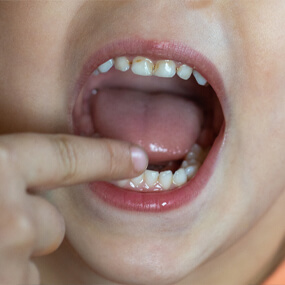Obstructive Sleep Apnea Increases Heart Failure Risk

Sudden cardiac death (SCD) is an unexpected loss of life due to heart failure. SCD results in more than 325,000 U.S. deaths annually, which makes it the leading cause of natural death in the country. SCD also accounts for more than 50 percent of all deaths related to heart disease.
Obstructive sleep apnea is a condition that causes a person to stop breathing intermittently throughout the night. The Journal of the American College of Cardiology published a study in which a greater risk of sudden cardiac death was found in people who suffer from this condition. The research studied 10,701 individuals over a period of longer than five years. In that span, 142 people died due to SCD, and the common predictors included age 60 or older, 20 or more sleep apnea episodes per hour, and oxygen saturation falling below 78 percent while asleep.
Dr. Virend Somers, who is a cardiologist at the Mayo Clinic and an author of the study, discussed the research and what had been learned. Among the more interesting points he made was that obstructive sleep apnea doubles the risk of sudden cardiac death, and increases in this risk correlate strongly to how low the oxygen saturation is and the number of sleep apnea episodes that occur per hour.
Oxygen saturation is a measure of airflow through the lungs, and a healthy person should be at 100 percent while asleep. People suffering from obstructive sleep apnea are often far below that mark, and as indicated in the study, that significantly increases the risk of sudden cardiac death.
Another author of the study, Dr. Apoor Gami, discussed some of the earlier research conducted by the Mayo Clinic. He raised an interesting point that people without obstructive sleep apnea who die due to a sudden cardiac event do so more often between 6 am and noon. People with the condition, on the other hand, have a much greater risk of passing between midnight and 6 am.
The point Dr. Gami was making was that previous research indicated that the average time of sudden cardiac death changed, but it did not reveal the reason. This research did reveal the reason, which is that the risk is increased substantially across the board but even more so within that period. This also means that obstructive sleep apnea increases the risk of SDC independent of other risk factors.
Obstructive sleep apnea is quite common in Western populations. There is a relationship between sleep apnea and weight, and so, the obesity epidemic in the West is the reason for this prevalence.
Other research has demonstrated that sleep apnea is a cause and may be a leading cause of various cardiovascular conditions, such as atrial fibrillation, cardiac arrest, hypertension, and strokes. On a positive note, sleep apnea is a treatable condition. Doctors can recommend a sleep apnea mouth guard or Mandibular Advancement Device in addition to weight loss and sleep posture adjustments.
How do mouth guards treat sleep apnea?
A Mandibular Advancement Device is similar to a mouth guard, and dentists custom-make them based on the unique oral cavities of their patients. Ample research shows that these devices not only treat sleep apnea but snoring as well. They do this by forcing the jaw forward, which expands airways and reduces resistance, and thus makes breathing easier. If you have been diagnosed with sleep apnea and your doctor determines that a mouth guard is an appropriate solution, your dentist will custom-fit it to your mouth and condition. Over-the-counter products are not recommended because they are generally ineffective.
What benefits can be expected from mouth guard use?
While the National Institutes of Health notes that CPAP devices may be the ideal treatment for obstructive sleep apnea, it recognizes that mouth guards may be more effective in practice because patients are more likely to use them. The NIH also recognizes that mouth guards may be more effective at increasing quality of life because they are less invasive and much easier and more convenient to use. Custom mouth guards are also less expensive than CPAP machines and are usually covered by insurance.
Custom Mouth Guards and Your Dentist
Your dentist can play a vital role in diagnosing obstructive sleep apnea as well as treating it. Using something as basic as a mouth guard to treat what is often a lethal health condition may seem a bit surprising. Nevertheless, research continues to show that not only are these products effective but that they are outperforming the more sophisticated CPAP technology. Providing patients with a comfortable and convenient solution is certainly the key. As the research also shows, most patients are willing to use mouth guards regularly, but the same cannot be said for CPAP machines.
Protect Your Health
Waking up gasping, loud snoring, morning headaches, sore teeth, and excessive daytime sleepiness are all warning signs of obstructive sleep apnea. If you are experiencing any of these, you should schedule an appointment at Scottsdale Cosmetic Dentistry Excellence. Jeffrey D. Clark, DDS, is skilled in dental sleep medicine. He can perform an initial diagnosis of sleep apnea as well as work with a sleep physician to treat you. If you have any questions or would like to schedule a consultation, call us at 480 585 1853.




